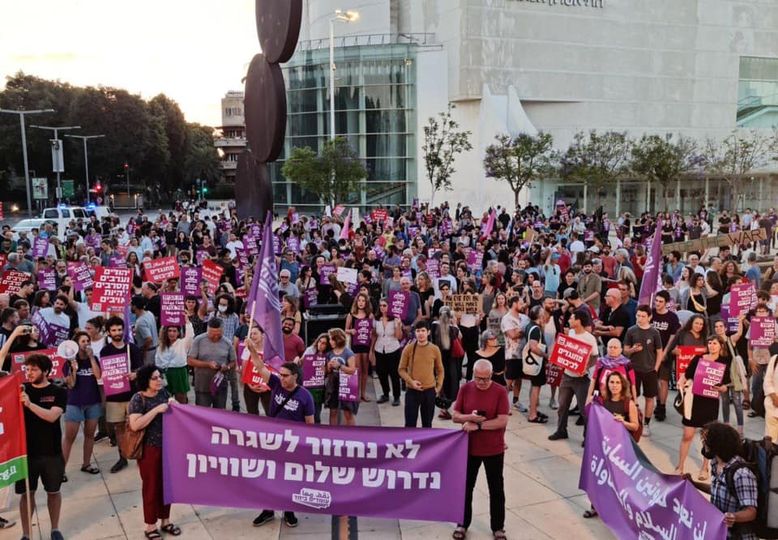On May 20, after eleven days of violence, destruction, and death, a ceasefire agreement was reached. The Israeli security cabinet agreed to terms late Thursday evening, bringing an end to one of the worst outbreaks of violence that the region has seen in the last decade.
As we reflect on the past two weeks and mourn the tragic, futile loss of life that accompanied this round of violence – including the loss of six members of an ALLMEP staff member’s family – the ceasefire brings a moment of pause and calls us to demand more. In the words of ALLMEP’s Regional Director, Huda Abuarquob, “Enough is enough.”
The ceasefire is only the start. Any lasting strategy to enact peace in the region must center the work of peacebuilders and civil society, and these are the moments that our community is designed to address. As tides of violence swept across the region over the last two weeks, ALLMEP’s 150+ member community worked tirelessly to organize discussions, demonstrations, marches, and protests. They refused to accept a status quo defined by dehumanization and violence. Instead, they rallied for a future defined by peace.
Standing Together set up hundreds of joint Arab/Jewish demonstrations, mobilizing thousands of activists calling clearly for peace and equality. Parents Circle Families Forum organized a candlelight vigil for the bereaved families of Israelis and Palestinians, urging an immediate ceasefire. Women Wage Peace, alongside many other ALLMEP member organizations, convened a “Chain of Peace” from Jaffa Gate to Damascus Gate. Sikkuy organized Arab and Jewish municipal leaders representing over 500,000 people to call on their communities to resist the “hatred and destruction” that extremists are fomenting.

If we have any hope of building lasting and sustainable peace, and moving forward with this ceasefire, it should begin with these grassroots movements. Top-down, final status peace agreements have proven to be short-lived and fleeting, in this context and in many others. Instead, we should look to support people-to-people programs, working for peace from within the communities at conflict themselves. These programs need to happen every day, not just in times of crisis. They need to be expanded, developed, and scaled, and there need to be more of them.
In December of 2020, after a decade of ALLMEP advocacy efforts, Congress passed the Nita M. Lowey Middle East Partnership for Peace Act into law. This fund dedicates $250 million over five years to projects that support peacebuilding and Palestinian economic development, and represents the largest investment ever in the region’s peacebuilders. There is also growing international interest from many U.S. allies to join this effort, pooling the resources, ideas and legitimacy to reach the sort of level that will be required to address the scale of the challenge that was tragically laid bare in recent weeks.
The world cannot turn away now. This ceasefire is the beginning of a long and difficult road toward peace. There is opportunity ahead for scaling peacebuilding in the region – locally-led and sustainable people-to-people work. In these dark times, in the wake of eleven days of horrible violence, it is the peacebuilding community that offers us hope.
